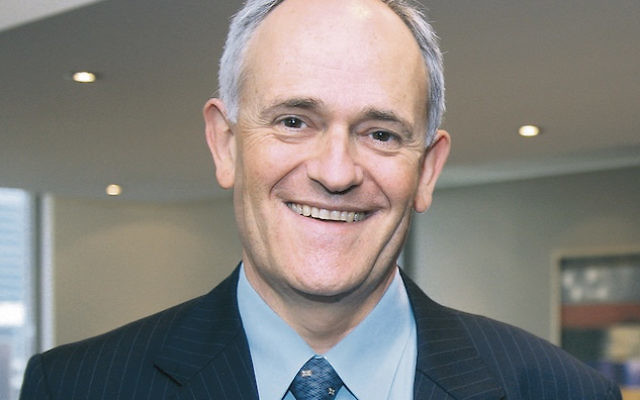Gen17 findings: Committed to Israel, unbowed by anti-Semitism
There is clearly room for our community to get better at reporting public anti-Semitic discourse, especially online. Complaints should be directed to the ECAJ and state roof bodies and communal security groups.
THE Gen17 survey is impressive both because of the number of respondents – the highest of any study of any Jewish community ever carried out anywhere in the world – and because of its methodological rigour.
Given the range of issues covered by the survey, it is striking that the proposition which received the highest level of positive responses – 88 per cent – was “I feel a sense of responsibility to ensure that the State of Israel continues to exist.”
Even more striking is that there was little variation between different age groups.For the under 50s, the level of support ranged from 83 per cent to 88 per cent. For the over 50s, the range was from 90 per cent to 96 per cent. Sentiments are matched by actions.
More than 60 per cent of Australian Jews have visited Israel three times or more. As the researchers concluded, “Israel is a strong unifying theme for Australian Jews.”
These results are all the more remarkable in light of the finding that only 46 per cent of respondents indicated that visiting Israel is a “very important” part of their sense of Jewish identity and another 35 per cent thought it “fairly important”.
Not surprisingly, in response to questions concerning Israeli society and the possibilities for peace there was a much greater diversity of opinion among respondents, as there is among Israelis themselves.
64 per cent of respondents agreed that “Orthodox Judaism has too much influence in Israel’s society”; just under a majority (47 per cent) agreed that “there is too much corruption in Israel’s political system”; a minority, but close to one in three respondents (37 per cent), agreed that “non-Jewish groups suffer from discrimination”. In contrast, only a very small minority (13 per cent) are in disagreement with the proposition that “democracy in Israel is alive and well”.
There was an almost even split in opinion on whether “Israel should give up territory in exchange for guarantees of peace with the Palestinians”.
A strong majority of 69 per cent of respondents affirmed that they identify as Zionists. This is down from the 79 per cent recorded by the Gen08 survey. However, the Gen17 question provided no definition of Zionism, whereas the Gen08 question provided an expansive definition – “You feel connected to the Jewish people, to Jewish history, culture and beliefs, the Hebrew language and the Jewish homeland, Israel.”
The absence of a definition in the Gen17 question might also help to account for the higher proportion of “Don’t know/No answer” responses – 10 per cent compared to seven per cent for Gen08.
Notably, it was the youngest age group (aged 18-29) who self-identified the most strongly as Zionists, at 75 per cent.
When it comes to anti-Semitism, responses indicate that it does not impact in any significant way on the lives of most Australian Jews.
Overall, 54 per cent of respondents said anti-Semitism in Australia is a “not very big problem” or “not a problem” at all, compared to 43 per cent who consider it a “very big/fairly big” problem. This is almost identical to the Gen08 survey result. Only six per cent considered anti-Semitism to be a “very big” problem.
Yet an overwhelming 91 per cent considered “combating anti-Semitism” to be “very” or “fairly” important to their sense of identity.
Based on answers provided by respondents, there were 43 physical attacks in the year before the survey, a worrying number, and far more than has been reported.
Another two per cent said they had witnessed such an attack. Unsurprisingly, the less serious the form of anti-Semitism, the more frequently it is reported to have occurred, a consistent finding of the ECAJ’s annual reports on Anti-Semitism in Australia.
There is clearly room for our community to get better at reporting public anti-Semitic discourse, especially online. Complaints should be directed to the ECAJ and state roof bodies and communal security groups.
Overall, Jewish Australians remain overwhelmingly committed to Israel’s continued existence.
They perceive that unofficial anti-Semitism in Australia persists and must be fought, but they are unfazed by it.
PETER WERTHEIM is co-executive director of the ECAJ.


comments